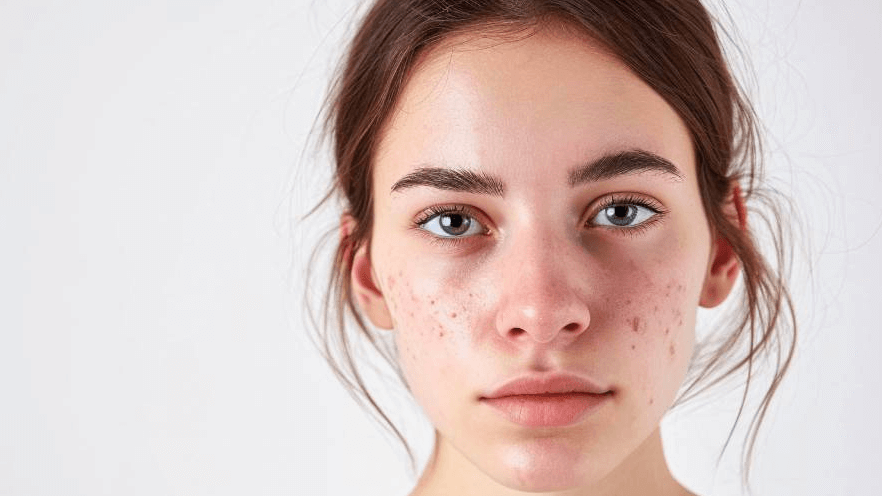How to Tell if You Have Rosacea or Acne
&srotate=0)
Many people have a hard time telling the difference between rosacea and acne, as both cause redness, bumps, and general skin discomfort. At Spyglass Dermatology, Dr. Ryan Alan Schuering and his team of trained providers specialize in medical dermatology, helping people address concerns like flushed skin and persistent breakouts. If you're unsure which condition you're dealing with, we can provide answers and effective solutions.
So, how do you treat rosacea, and what causes acne? Call now to book a skin consultation in Tequesta, FL. We offer custom treatment plans so patients can finally enjoy clear, healthy skin.
What is rosacea?
Rosacea is a chronic condition that primarily affects the face, leading to redness and flushed skin. It can also cause small bumps, visible blood vessels, and thickened skin over time. It typically runs in families and is more common in fair-skinned individuals. Triggers for rosacea include:
- Sun exposure
- Stress
- Hot or spicy foods
- Alcohol consumption
- Certain skincare products
How do you treat rosacea?
So, how do you treat rosacea? While there is no set cure, rosacea symptoms can be managed with the help of a dermatologist. Dr. Schuering and our experienced providers may start by helping you identify specific triggers. We can also prescribe topical medications such as metronidazole and azelaic acid to reduce inflammation and flare-ups. Topical alpha-adrenergic receptor agonists like brimonidine may temporarily reduce redness.
For those looking for a long-lasting solution in Tequesta, FL, laser therapy can target and shrink the visible blood vessels that contribute to redness.
What causes acne?
Acne is a common condition that affects both teenagers and adults. So, what causes acne? It occurs when hair follicles on the face, neck, chest, and back become clogged with dead skin cells and oil. This leads to whiteheads, blackheads, or inflammatory acne, such as pustules and cysts. Cystic acne, in particular, can be painful and leave behind scarring.
Some common causes of acne include:
- Hormonal changes
- Genetics
- Certain medications
- Diet
How do you treat acne?
Thankfully, our medical dermatology providers know how to treat unwanted acne and prevent future breakouts. This includes therapies like topical retinoids, chemical peels containing glycolic acid and salicylic acid, and antibiotics for those with moderate to severe acne. We also recommend lifestyle changes, such as avoiding harsh skincare products and incorporating stress-reducing activities into your routine.
In severe cases of cystic acne, isotretinoin (previously known as Accutane) may be prescribed. This medication works by reducing oil production, leading to significant improvements for most patients.
Do I have rosacea or acne?
Rosacea and acne present themselves in generally different ways, even though both cause similar symptoms like redness and bumps. Those with rosacea will typically experience persistent redness, flushing, and visible blood vessels, while people with acne may have a mix of whiteheads, blackheads, and inflamed bumps. It is also possible to have both conditions at the same time. If you're unsure about your skin concerns, it's ideal to consult with a dermatologist for an accurate diagnosis.
Treat your skin issues today
Whether you're dealing with flushed skin, cystic acne, or a combination of both, Dr. Ryan Alan Schuering and his team of trained providers can help. Our goal at Spyglass Dermatology is to provide personalized, effective solutions for your concerns in Tequesta, FL. Medical dermatology is our specialty, so don't let skin issues hold you back from feeling confident and comfortable in your own skin. Contact us today.